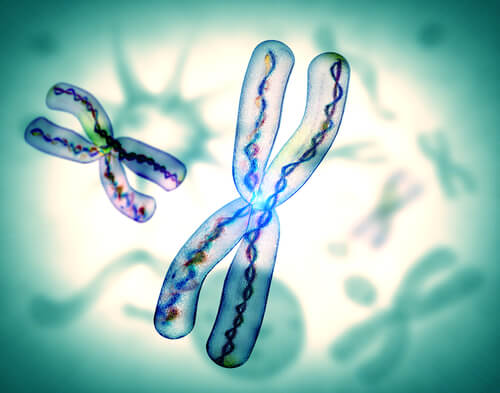Are you worried that you may suffer from male pattern baldness which is a hereditary problem? Your forefathers might have suffered with baldness. That’s why you have a nightmare that you will also certainly follow their path, right? But, be assured; this is not always true.
In this article, we will discuss about the inherited pattern of baldness.
Let us first focus on the science which talks about the genetic mutation and heredity. You should be aware of the different genetic factors which are responsible for developing male pattern baldness. So, if the reasons are known to you, you may take precautions to lower the risk of suffering from male pattern baldness.
How do you inherit Male Pattern Baldness?

Before we start discussing about the main topic, i.e. whether it is possible to skip baldness for any generations, it is more important to tell you the fact that scientists are still not sure of the exact inheritance pattern of male pattern baldness or androgenic alopecia. The reason behind this is the existence of multiple genetic and environmental factors, which play a key role in developing male-pattern baldness.
What is AGA inheritance?
Let’s now discuss about the research work done by the scientists on AGA inheritance. First and foremost, the research work reveals that heritability of AGA has counts of over 80%. This mainly occurs due to androgen sensitivity. Now you may have a question in your mind that what is the role of Androgen in our body?
Androgen is a type of hormone present in the human body. The main function of this hormone is to develop pubertal actions, in both males & females. In male bodies, androgen helps to develop the male sex organs along with secondary characteristics like growth of body hair, deepening of the voice, increase of muscle mass etc. These changes we generally notice in males undergoing puberty.
Now, we have a generalized idea that androgens play major role in the development of male-pattern baldness. But the actual fact is that it’s the androgen receptors that cause a problem. Genetics Home Reference claims that a gene known as the Androgen Receptor or AR is responsible for the development and placement of androgen receptor. Increased activity of androgen receptors in hair follicles occurs due to the variations or mutations in this gene.
In the year 2001, Ellis et. al. conducted a study of androgen receptor genes over 553 men. Among these men, 446 numbers showed signs of significant baldness, while the rest didn’t have any indication of baldness whatsoever. Scientists, on the basis of mutation of one particular gene, drew a conclusion that men diagnosed with baldness had a higher incidence of AR gene.
A survey was conducted on 54 young bald men. 98.1% of these men had the mutation. Remaining bald men had a mean age of 56. In comparison to this, only 76.6% of the 107 non-bald people showed this mutation.

Previously, AGA inheritance was believed to be a result of mutated AR gene. That would mean that inheritance patterns should be maternal. Further studies indicated that there exist an X-linked AR gene, but it’s not the sole factor responsible in male pattern baldness. An associated locus at chromosome 20p11.22 was discovered by a team of researchers in 2009. This research work was performed on 1,125 males. The study showed that an increased risk of AGA was present in those men who have a mutation on rs1160312 marker of chromosome 20. Furthermore, this research indicated an increased risk of AGA in men with both risk alleles (at 20p11.22 and AR). A 2016 study revealed the fact that there are at least 12 additional loci that were previously not discovered. More and more chromosomal loci, which contribute to male-pattern baldness inheritance, are being identified as the research continues.
Hope the above discussion has thrown some light on your idea about male pattern baldness or androgenic alopecia. At the same time, this is a true fact that you can’t alter your genetics. But surely, you can take a proactive action to baldness treatments by consulting with our hair loss specialist at FCHTC clinic in Ludhiana. We’ll guide you with the best solution to lessen the impact of baldness inheritance and will give you a better chance of resisting hair loss.

